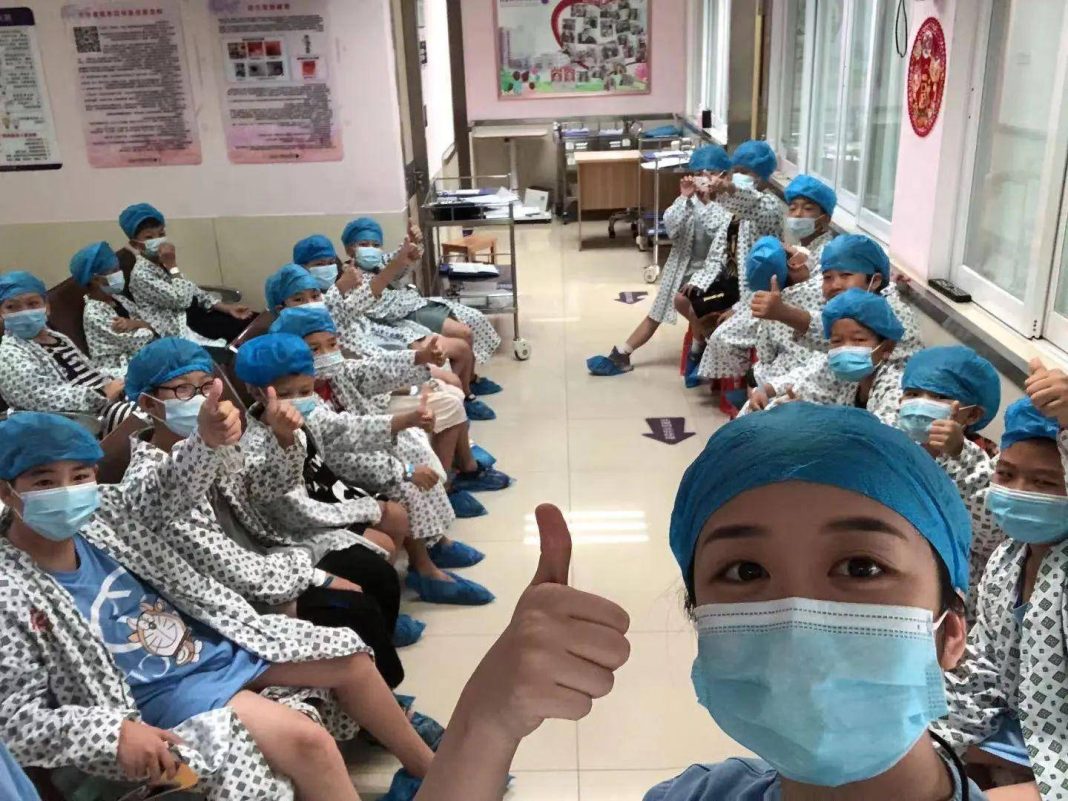As the summer vacation approaches, the pediatric surgical rooms in major hospitals in Dongguan are “packed” with many parents and boys.
Reporters have learned that these parents of boys are all worrying about the same thing – taking their children to the hospital for circumcision during the holiday.
It is understood that since July, there have been more than a dozen young boys coming to Dongguan Maternal and Child Health Hospital for circumcision every day, “the youngest being 5 years old, and some boys who have just finished the college entrance examination.”
Although circumcision often sees a peak during the summer vacation each year, not every young boy needs to undergo the procedure. What kind of situation requires circumcision? How should circumcision for phimosis be performed? Wu Gangquan, Director of the Pediatric Surgery Department at Dongguan Maternal and Child Health Hospital, cautions that circumcision should be done in a timely manner, but dealing with issues such as overly long foreskin and phimosis cannot be a one-size-fits-all approach and needs individual analysis.
Question 1: Does a long foreskin or phimosis always require circumcision?
Answer: Not always! During infancy and childhood, the foreskin acts as a natural protective cover for the “little brother” and circumcision is not absolutely necessary. In infancy and childhood, an overly long foreskin or phimosis is often a normal physiological condition. With development, the space between the foreskin and the glans of most boys will gradually widen, leading to separation. After the age of 3 or 4, the foreskin will retract on its own, pulling back to expose the glans.
Question 2: Under what circumstances is circumcision necessary?
Answer: ① After entering puberty, if the foreskin opening is too narrow and cannot retract to reveal the glans and urethral opening without pain during erection, it can potentially affect penis development.
② If maintaining hygiene due to phimosis is difficult, and recurrent balanoposthitis is frequent, circumcision surgery can benefit the child’s penile health.
③ Difficulty in urination, weak stream, and when the penis bulges like a balloon in the front during urination, with occasional pain, urine infection should be considered which can lead to kidney problems.
Question 3: What are the benefits of circumcision?
Answer: ① After circumcision, the penis is not restricted by the foreskin, aiding in secondary growth and development;
② Prevents bacterial growth under the foreskin, eliminating pathogens and preventing infections;
③ Around 75% of males who undergo circumcision experience an increase in sexual activity post-surgery, preventing premature ejaculation;
④ Prevention of decreased sperm quality due to inflammation, reducing the risk of infertility, promoting healthy reproduction;
⑤ Reduces the occurrence of cervical cancer by 58% indirectly caused by long foreskin or phimosis in partners;
⑥ Reduces the risk of HIV infection by 60% through circumcision.
Question 4: When is the best time to undergo circumcision?
Answer: It is generally recommended to undergo circumcision before puberty (i.e., between 7-12 years old). If the child is too young to cooperate with local anesthesia, hospitalization may be required for surgery. It is advisable not to delay beyond the age of 12 to avoid affecting penis growth and development. For children under 7 years old who repeatedly suffer from balanoposthitis and urinary tract infections, early surgical treatment is recommended.
Question 5: Why is it recommended for children to undergo circumcision during the summer vacation?
Answer: ① Children wear less during the summer and may not wear pants at home, making postoperative care easier and reducing friction from clothes on the wound, aiding in healing;
② Adequate recovery time: The long summer vacation allows sufficient time for wound healing, without affecting normal studies, and recuperating at home is more conducive to personal privacy;
③ Relaxation during the summer aids in postoperative recovery: Adolescents are burdened with heavy study tasks and stress during regular school days, while the summer vacation offers a relaxed period, reducing stress and aiding in recovery.
Question 5: How should children and parents care for the child post-operation?
Answer: ① Rest after surgery, avoid vigorous exercise, and prolonged standing or sitting. Poor local blood circulation can lead to swelling of the glans, affecting wound healing;
② Wear all-cotton underwear and loose, breathable trousers to reduce irritation and friction on the glans;
③ Maintain a light diet, avoid spicy foods, and reduce seafood consumption;
④ The first dressing change will be done on the second day post-surgery. Difficulty urinating after surgery is usually due to tight bandaging and swelling of the wound, which is normal and will resolve on its own in a few days;
⑤ The second dressing change will be done 5-7 days after surgery. During this time, there may be varying degrees of pain due to erections and wound healing. Distraction techniques can help relieve pain, and if pain significantly affects daily life, painkillers can be used under medical guidance.
The summer vacation is the golden period for young children to undergo circumcision. Parents should bring their children to the hospital to check their reproductive development and promptly treat foreskin-related issues such as phimosis and balanoposthitis. July to August is the peak period for consultations, so please make appointments in advance and arrange your time accordingly.
By: Yao Ziting
Image: Provided by the interviewee


